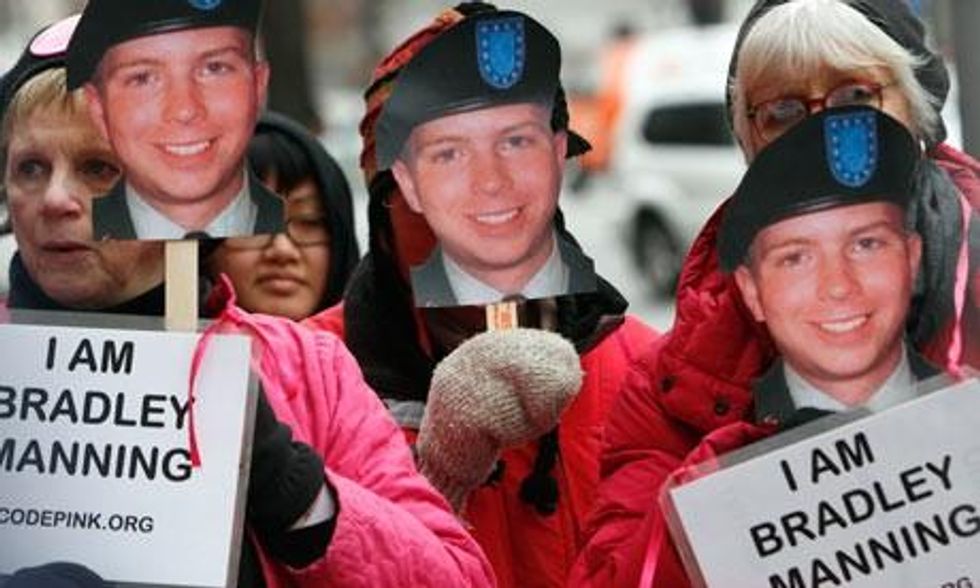Tomorrow morning, Private First Class Bradley Manning will be required to stand naked for the daily roll call in the US marine base in Quantico, Virginia, where he is being held on multiple charges, including "aiding the enemy", for his alleged role in the release of tens of thousands of US security files to WikiLeaks.
The reason for this nakedness is that Manning had complained about being constantly under watch, as part of a "prevention of injury" regime, and had remarked, flippantly, that if he wanted to harm himself he could do so with the elastic from the waistband of his underpants or with his flip-flops. As a result, his underwear and footwear are now confiscated from his cell overnight and he has to present himself naked for inspection in the morning before they are returned.
If Manning has read his Catch-22, as he doubtless has, he would know from the experience of Yossarian that the US military does not do irony. In solitary confinement, as he has been for the past 10 months, he may wonder how much of his predicament is known to the outside world. In many ways, he has become the forgotten man of the WikiLeaks story, although it is Manning who faces the most severe penalties and Manning who is accused of having leaked the most explosive items passed on to the world through WikiLeaks, notably the "collateral murder" video of an attack on civilians in Iraq in 2007 by a US Apache helicopter.
One person who has raised his voice on Manning's behalf is Daniel Ellsberg, who himself was accused of putting lives at risk and behaving in a traitorous fashion for releasing the Pentagon papers about the conduct of the Vietnam war some 40 years ago. As he recounts in his memoir, Secrets, Ellsberg found himself on the receiving end of the anger of a furious US government and military. Not only was a plot hatched to break into his psychoanalyst's office to discover damaging information about him but also a team of Cuban exiles was hired to disrupt a rally he was addressing and break his legs. Chillingly, the then secretary of state, Henry Kissinger, and President Nixon discussed how they could best damage him. Thanks to the contemporaneous tapes, we know that Kissinger suggested waiting until the war was over in Vietnam, "then we can say this son of a bitch nearly blew it ... Then no one will give a damn about war crimes."
Manning, like Ellsberg, is driven by idealism rather than anything more sinister or mercenary. He must hope that people still do give a damn about war crimes and will continue to do so when he finally comes to trial. The casual taking of life and the hypocrisy that he has exposed are far more serious than the offences of which he has been accused. The way he is being treated and the charge of "aiding the enemy" - which enemy has not yet been specified, doubtless one will eventually be found - are very similar to the way Ellsberg was pursued.
Manning's lawyer, David E Coombs, notes on his website that "the decision to strip PFC Manning of his clothing every night for an indefinite period of time is clearly punitive in nature ... There is no justification and there can be no justification for treating a detainee in this degrading and humiliating manner." It is clear that Manning is becoming isolated while in custody and may need all the help he can get in the months before his trial. The Bradley Manning Support Network gives details of the rally planned to support him in Quantico on 20 March. It would be a further cruel irony if the man accused of turning the spotlight on shameful behaviour should suffer because not enough attention is being paid to his own predicament.




